

Q U A R T E R L Y N E W S L E T T E R
Doing What Matters: A Testament to Strategic Impact
Building Brighter Futures: New ECAC Report
Baltimore Local Care Team Five-Year Report Reveals Successes and Opportunities
Family League Sets National Standard for Youth Development
BY JENEE TUCKER, FAMILY LEAGUE SR. DIRECTOR FOR COMMUNITY IMPACT
Family League of Baltimore has achieved a milestone that validates three decades of community-centered work: prominent recognition as a national case study in "The Future of Youth Development: Building Systems and Strengthening Programs," a major report from the National Academies of Sciences, Engineering, and Medicine.
This prestigious publication, supported by the Wallace Foundation and serving as the definitive follow-up to the influential 2002 "Blue Book," showcases Family League across multiple sections as an exemplary model for how local intermediaries can effectively coordinate, fund, and strengthen community-based programming.
A Strategic Investment Model That Delivers Results
The National Academies report highlights our comprehensive approach to Out-ofSchool Time (OST) programming and the impressive scale of our citywide impact. In fiscal year 2021 alone, Family League distributed $5.6 million in funding from the Mayor's Office and City Council, supporting 44 community schools through $2.4
44 community schools through $2.4 million in grants to 17 community-based organizations, and creating 2,258 OST positions through $3.2 million awarded to 18 lead agencies.
This strategic funding model demonstrates how intermediary organizations can leverage multiple resource streams to create meaningful opportunities for young people across an entire city. Our work shows that when you align federal, state, municipal, and private resources with strong community partnerships, transformative change becomes possible.
Data Integration as a Driver of Innovation
What sets Family League apart, according to the National Academies, is our sophisticated use of data integration to assess citywide impact. We receive and analyze information from OST programs, Baltimore City Public Schools, the Baltimore City Police Department, and various human service agencies to create a comprehensive picture of Baltimore's youth development system.
This multi-sector data approach allows the City of Baltimore to evaluate how OST
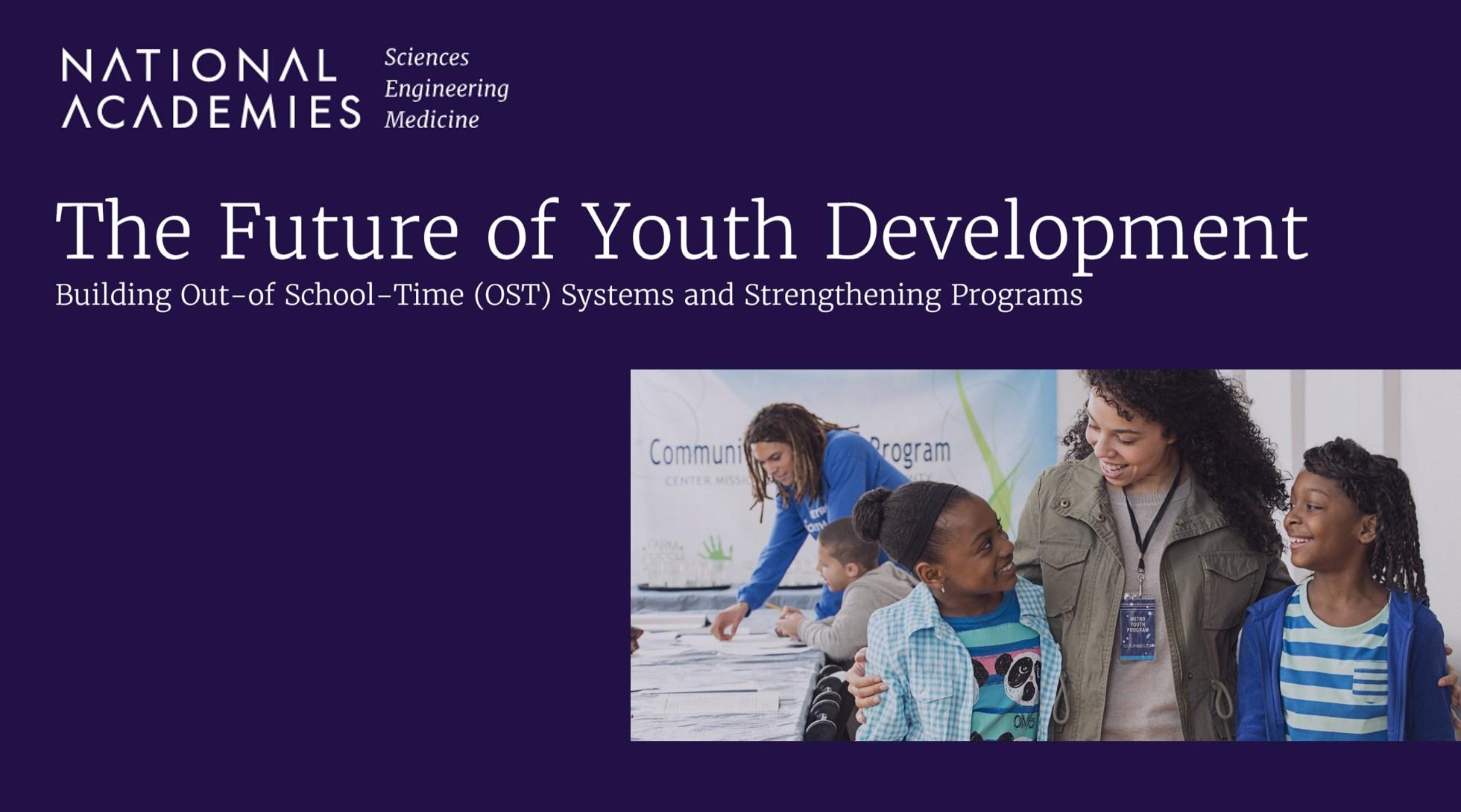

programs support broader municipal goals, including reducing juvenile crime rates, decreasing teen pregnancy, and increasing high school graduation rates. The report positions this data-driven methodology as a model for other
Continued on page 12
Jenee Tucker is the Senior Director for Community Impact at Family League, where she stewards a $12 million budget to support education initiatives such as School Readiness, Community Schools, and Youth Development programs. With over two decades of experience, Jenee excels in managing evidence-based programs, leading a team of Program Directors, and collaborating with stakeholders to ensure equitable grant-making and program effectiveness.
She joined Family League in 2016, rising through the ranks to her current role in 2024. Previously, Jenee worked with Baltimore City Public Schools and Big Brothers Big Sisters of Central Maryland. A Baltimore native, she holds an M.S. in Project Management from Morgan State University and a B.S. in Criminal Justice from Virginia Union University.
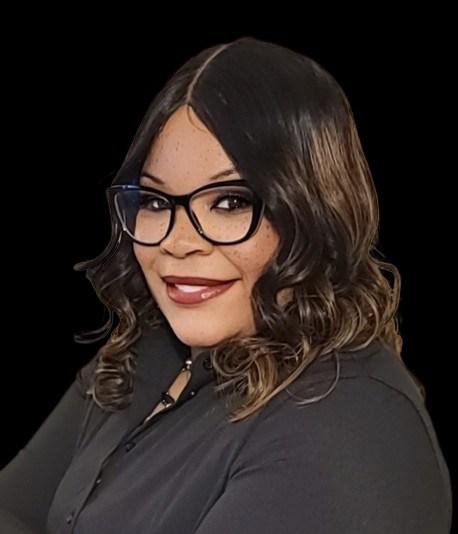


MEET JENEE TUCKER
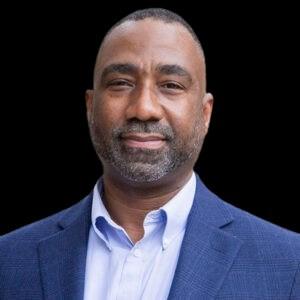

Demaune Millard
A MESSAGE FROM OUR CEO
Celebrating Progress Through Evidence and Excellence
DEMAUNE MILLARD, FAMILY LEAGUE
Our commitment to data-driven solutions and collaborative partnerships continues to create transformational change across Baltimore
Dear Friends and Partners of Family League,
I am deeply proud to share the evidence of what intentional collaboration and community-centered investment can achieve. This summer's newsletter showcases not just our programs and initiatives, but the measurable outcomes that demonstrate how strategic partnerships create lasting change in the lives of children, youth, and families.
National Recognition Validates Our Approach
The inclusion of Family League as a prominent case study in "The Future of Youth Development" by the National Academies of Sciences, Engineering, and Medicine represents a milestone that validates three decades of community-centered work. The recognition highlights our comprehensive approach to Out-of-School Time programming and positions our data-driven methodology as a model for cities nationwide seeking to understand and improve their youth development ecosystems.
What makes this recognition particularly meaningful is how it reflects our commitment to building systems that don't just fund programs, but fundamentally change how communities support young people. When intermediary organizations like Family League use data to drive decisions and invest in grassroots partnerships, we create the infrastructure necessary for lasting change in children's lives. Evidence-Based Solutions Create Real Impact
Our Baltimore City Local Care Team evaluation provides compelling evidence of collaborative efforts over five years. With 82% of referrals resulting in formal reviews and 54% of youth successfully connected to community-based services, we demonstrate that interagency coordination can effectively address complex behavioral and mental health needs while keeping families together.
Similarly, our Baltimore City Early Childhood Advisory Council (ECAC) report charts a clear course for addressing the critical challenges facing our youngest learners. This collaborative effort between state and local partners creates actionable solutions for capacity shortages, affordability barriers, and school readiness gaps that impact thousands of Baltimore families.
Investing in Those Who Make Change Possible
The heart of our work lies in the dedicated professionals who serve Baltimore's families every day. From our B'More for Healthy Babies partners serving over 3,200 pregnant individuals and new parents annually, to the afterschool professionals who create safe, engaging environments for thousands of students, these colleagues embody our mission through their daily commitment to excellence.
Our appreciation events and professional development initiatives represent more than recognition they reflect our understanding that sustainable community impact requires investing in the people who breathe life into programs. When community health workers, educators, and youth development specialists feel valued and
equipped, that energy translates directly into improved outcomes for the families we serve.
In Going Forward
As we continue advancing our four priority areas Cradle to Career Education, Healthy Families, Economically Secure Families, and Safe and Thriving Communities I am grateful for the exceptional leadership of our staff, the strategic guidance of our Board of Directors, and the unwavering partnership of organizations across Baltimore who share our commitment to equity and excellence.
The evidence presented in this newsletter demonstrates that when we align resources, leverage data, and center community voice in our decision-making, transformative change becomes not just possible, but measurable. Together, we are not just serving Baltimore we are building a model that other cities can follow to create lasting change for children and families.
Thank you for your continued partnership in this essential work. The future we are building together is bright, and the evidence of our impact continues to grow stronger each day.
With gratitude and determination,
Demaune A. Millard President & CEO
Doing What Matters: A Testament to Strategic Impact
Building Stronger Communities Through Engaging Partnerships
Family League's 2024 Annual Report stands as a powerful testament to what strategic collaboration and communitycentered investment can achieve. Under the theme "Doing What Matters," the organization's $19+ million investment across 84 funded partners reached more than 14,000 Baltimore residents, creating measurable change throughout the city's diverse neighborhoods. Doing What Matters means transforming communities through intentional action, data-driven decisions, and unwavering commitment to Baltimore's children, youth, and families.
“Strategic fiscal stewardship and community investment represent complementary approaches for sustainable impact and organizational excellence.”
KEIANNA THOMPSON CFO, Family League
Scan to view 2024 Annual Report

Unprecedented Community Impact Through Strategic Investment
The numbers tell a compelling story of transformation: 275+ families supported through home visiting services, 3,400 students engaged in high-quality out-ofschool programming, and 16,490 pounds of fresh produce distributed to combat food insecurity. These achievements reflect Family League's commitment to addressing Baltimore's most pressing challenges through coordinated, datainformed solutions.
"This report demonstrates our unwavering commitment to dismantling systemic barriers through strategic action," said Demaune A. Millard, President & CEO. "Every investment, partnership, and program represents our collective effort to create equity for all Baltimoreans. When we focus on doing what matters, we see real transformation families finding stability, children becoming kindergarten-ready, and
communities developing resilience."
Summer programming initiatives particularly showcased the organization's reach, with $1.5 million invested across 18 zip codes, serving 1,676 youth with an impressive 86% attendance rate. The collaboration with Maryland's Governor's Office for Children to advance the groundbreaking ENOUGH initiative further positioned Baltimore to leverage state resources for comprehensive antipoverty strategies.
The technological transformation proved equally significant. Senior Director of Innovation and Technology Dara Gray spearheaded the launch of the revolutionary INSIGHT Intelligence platform a comprehensive Salesforce-based system years in development that fundamentally reimagined how Family League collects, analyzes, and leverages information.
"INSIGHT Intelligence connects systems, people, and data to directly improve community outcomes," Gray noted.

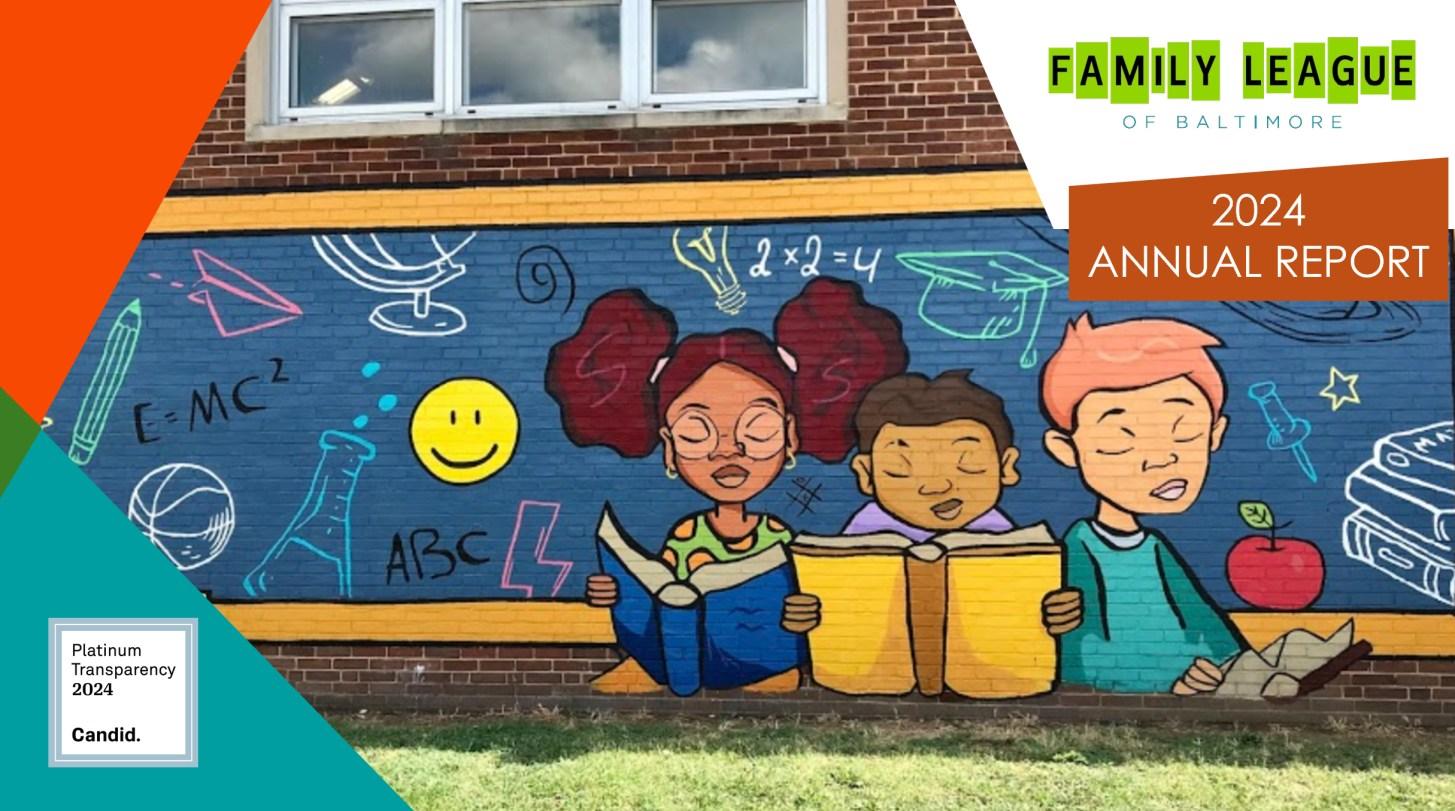
Innovation and Operational Excellence Drive Results
"Working with both internal teams and external stakeholders, we eliminated cumbersome Excel trackers and manual reporting processes, replacing them with real-time data access and streamlined reporting capabilities. This transformation enhanced both accountability and strategic decision-making for our 84 funded partners."
Community-Centered Design Reflects Baltimore's Rich Cultural Landscape
The annual report itself embodies Family League's community-centered approach through its distinctive design featuring Baltimore murals from across the city. The cover showcases "A Great Day for Learning" by Megan Lewis, while interior pages highlight Banner Neighborhoods Community Corporation murals and works by artists including Joel Bergner, LaToya Peoples, and Mural Masters Inc.
Continued on page 12
BRINGING BALTIMORE TOGETHER: ENOUGH CAPACITY BUILDING CREATES LASTING IMPACT
Family League's ENOUGH Baltimore Capacity Building event brought together community leaders, grantees, and strategic partners for a transformative half-day session that exemplified the power of intentional collaboration. Hosted in partnership with the Maryland Governor's Office for Children and the Mayor's Office of Children & Family Success, the July 30th convening created meaningful connections among organizations at different stages of their ENOUGH journey.
The event featured three dynamic experiences designed to strengthen community impact across Baltimore. Family League leadership, including Sr. Directors Jenee Tucker and Melissa Moore alongside Director Jessie Tartanian, showcased our fourpillar programmatic framework while demonstrating how we deliver strategic technical assistance and professional development. First-year ENOUGH grantees Alex Warrick Adams of Elev8 Baltimore and Desiree Eades of Park Heights Renaissance shared authentic insights on asset mapping and neighborhood action planning. The Cherry Hill Strong fireside chat with Executive Director Zeevelle "Z" Nottingham-Lemon, Community Organizer Malika Brown, and Community Advocate Dr. Bartholomew explored the critical responsibilities of community quarterbacks and implementation strategies.
From Strategy to Action
Participants left energized and equipped with practical tools for advancing their community work. Subira Brown, Senior Project Manager at Urban Strategies Inc., captured the session's
impact perfectly: "Effective systems change doesn't just come from convening it comes from DOING." Her reflection highlights how Family League bridges the gap between bold ideas and actionable implementation, ensuring families remain at the center of every strategy.
The day's most powerful moment came during the reflection portion when partners organically began strategizing around Community Quarterback roles for upcoming applications. This spontaneous collaboration demonstrated exactly what Mysiki Valentine from the Governor's Office for Children praised: our ability to synergize collective strategies while building strong support networks for Baltimore residents.
Family League's Essential Role as Neutral Convener
As Chief of Staff Jonathan Carter noted, the event highlighted "the critical role Family League plays as a neutral convener to support positive outcomes for all of Baltimore's children, youth, and families." This convening power extends beyond hosting events it creates the conditions for authentic partnership and sustainable change.
Special recognition goes to the entire Family League team, particularly CEO Demaune Millard for his welcoming leadership and the seamless event coordination. We were honored to have Dr. Sabriya Sturdavant from Morgan's Center for Urban Health Equity actively participating, further strengthening our collaborative network across Baltimore's academic and community sectors.

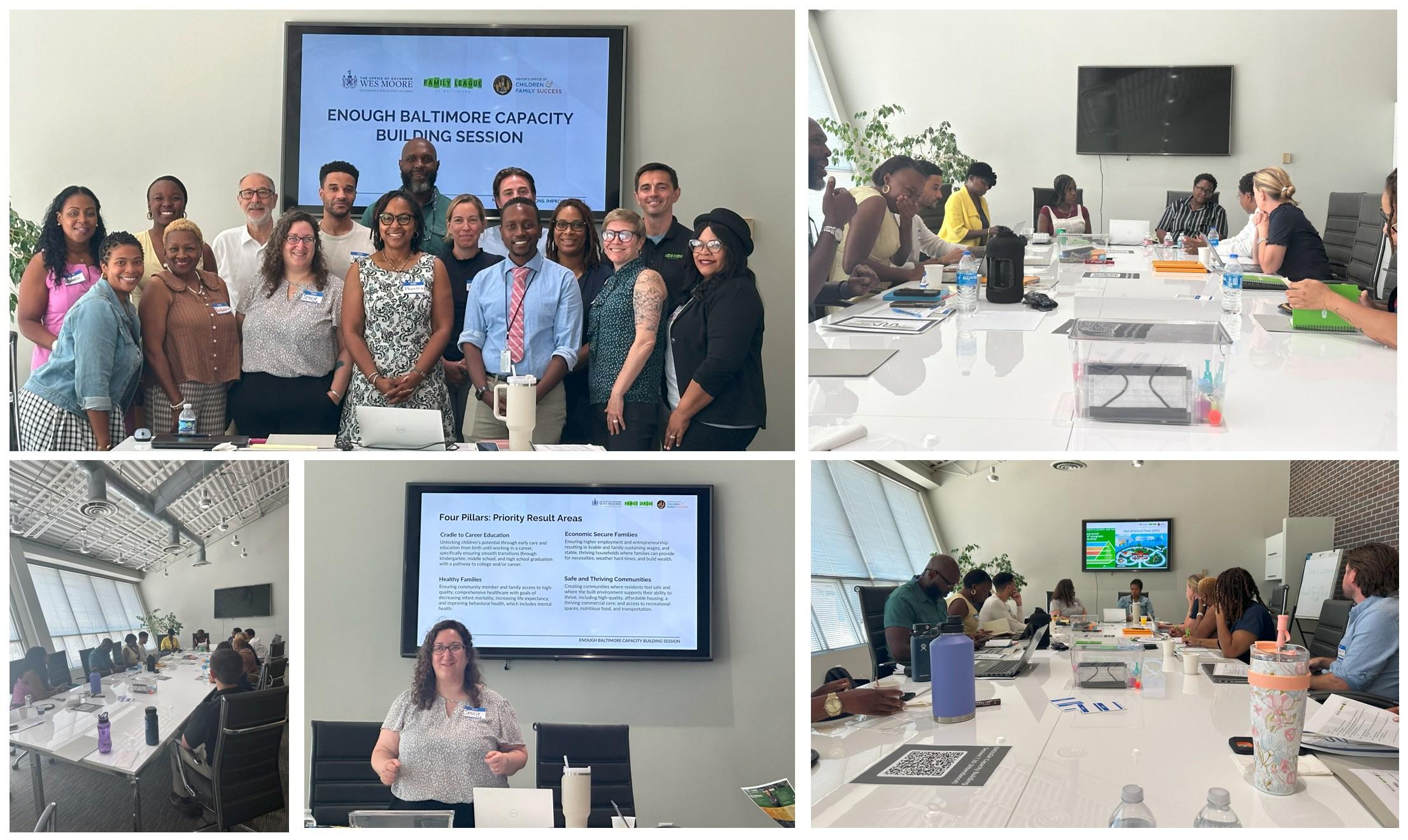
Investing in Those Who Care: Advocate Self-Care
100+ Frontline Workers Honored at Maryland Zoo Gathering Focused on Refresh and Recognition
In the demanding world of community health work, moments of recognition and restoration are precious. Family League's B'More for Healthy Babies program understood this deeply when they transformed the Maryland Zoo's historic Mansion House into a sanctuary of appreciation for over 100 frontline health workers this May.
Beyond Recognition: Creating Space for Renewal
The annual Refresh event represented more than simple acknowledgment it embodied a philosophy that those who
encounters with penguins and armadillos, creating memories that extended far beyond traditional professional development experiences. Chair massages and therapy dog visits added layers of comfort that acknowledged the emotional weight these professionals carry daily.
"It is amazing to have the opportunity to create a special day of fun, relaxation, connection, and self-care for our B'More for Healthy Babies partners who work incredibly hard and deserve a day that is just about them,"
human infrastructure that makes change possible.
President & CEO Demaune A. Millard's words to the gathering captured this essential truth: "Each person in this room is an important piece of B'More for Healthy Babies' impact on families and communities. Whether you're conducting home visits, coordinating care, or connecting families to resources you are essential."

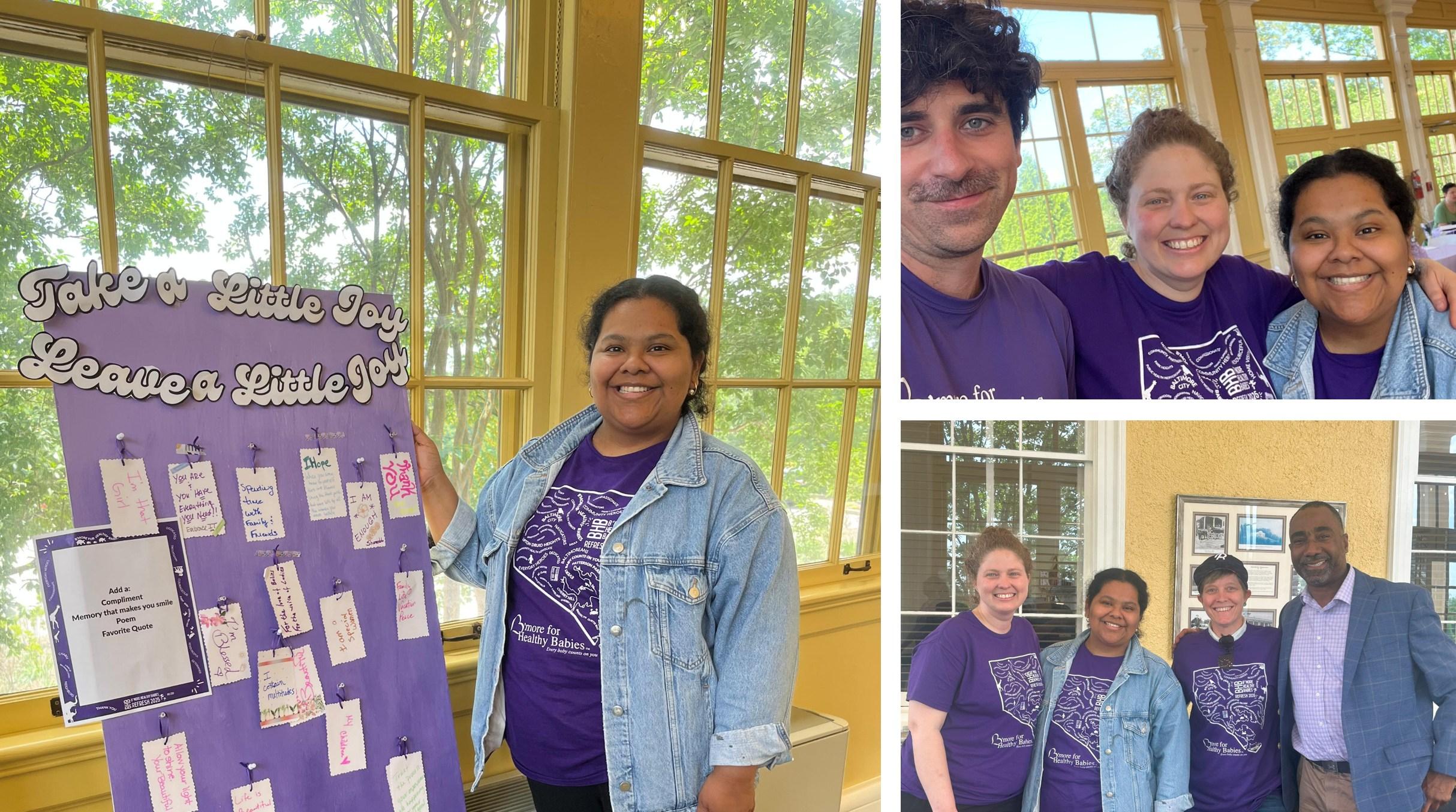
dedicate themselves to caring for Baltimore's most vulnerable families deserve intentional care in return. Home visitors, lactation specialists, HIPPY coordinators, and care coordination team members who collectively support 3,200 pregnant women and new parents annually found themselves in an environment designed entirely around their wellbeing.
The unique zoo setting provided unexpected moments of joy and connection. Participants moved from yoga sessions in the Waterfowl Pavilion to intimate
reflected Nina Kearin, B'More for Healthy Babies Program Director.
The Ripple Effect of Supporting Supporters
This investment in workforce wellness reflects a deeper understanding of how sustainable community impact happens. When community health workers feel valued and renewed, that energy translates directly into the quality of care they provide to Baltimore families. The Refresh event recognized that addressing infant mortality and improving birth outcomes requires not just programmatic strategies, but also nurturing the
Sustaining Baltimore's Health Equity Mission
As a longstanding community impact portfolio partner for Family League, B'More for Healthy Babies demonstrates how comprehensive approaches to maternal and infant health extend beyond direct service delivery. Through partnerships with CareFirst BlueCross BlueShield, the City of Baltimore, the Maryland Department of Health, and federal agencies, the initiative creates a network of support that
Continued on page 12
Building Brighter Futures
New ECAC Report Charts a Course for Baltimore’ s Youngest Learners
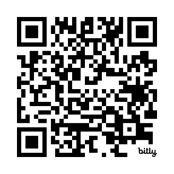
A coalition is working tirelessly to ensure every child gets the strong start they deserve. The Baltimore City Early Childhood Advisory Council (ECAC) recently released a comprehensive landscape analysis that shines a light on both the challenges and opportunities facing our city's youngest residents. The report tells the story of Baltimore families and charts a roadmap for school readiness.
Understanding ECAC: A Collaborative Force in Local Education Landscape
ECAC operates as more than just another advisory body it's a dynamic partnership that brings together early childhood educators, policymakers, community advocates, and organizations like Family League. Under the Maryland State Department of Education, ECAC coordinates efforts among early care and education programs, conducts critical needs assessments, and develops strategic plans that shape early childhood education across our state.
What makes ECAC particularly effective is its collaborative approach. Rather than working in silos, council members represent diverse perspectives and expertise, creating solutions that address real-world challenges facing Baltimore families. The council serves as a bridge between grassroots community work and state-level policy, ensuring that the voices of families and frontline educators are heard where decisions are made.
Family League of Baltimore plays a crucial role as both a funded partner and staffing agent for ECAC's important work. This partnership directly advances one of our four priority results areas: Cradle to Career Education. This comprehensive approach focuses on unlocking children's potential through early care and education from birth until working in a career, specifically ensuring smooth transitions through kindergarten, middle school, and high school graduation with a pathway to college and/or career.
Our organization's deep community roots and commitment to improving outcomes for children and families makes us an ideal partner in this collaborative effort, particularly as ECAC's work addresses the critical foundation of this cradle-to-career continuum. Leading our involvement is Yolanda M. Jenkins, Family League's Program Director of School Readiness, who serves as the operating manager and facilitator for ECAC. In recognition of her expertise and dedication, Governor Wes

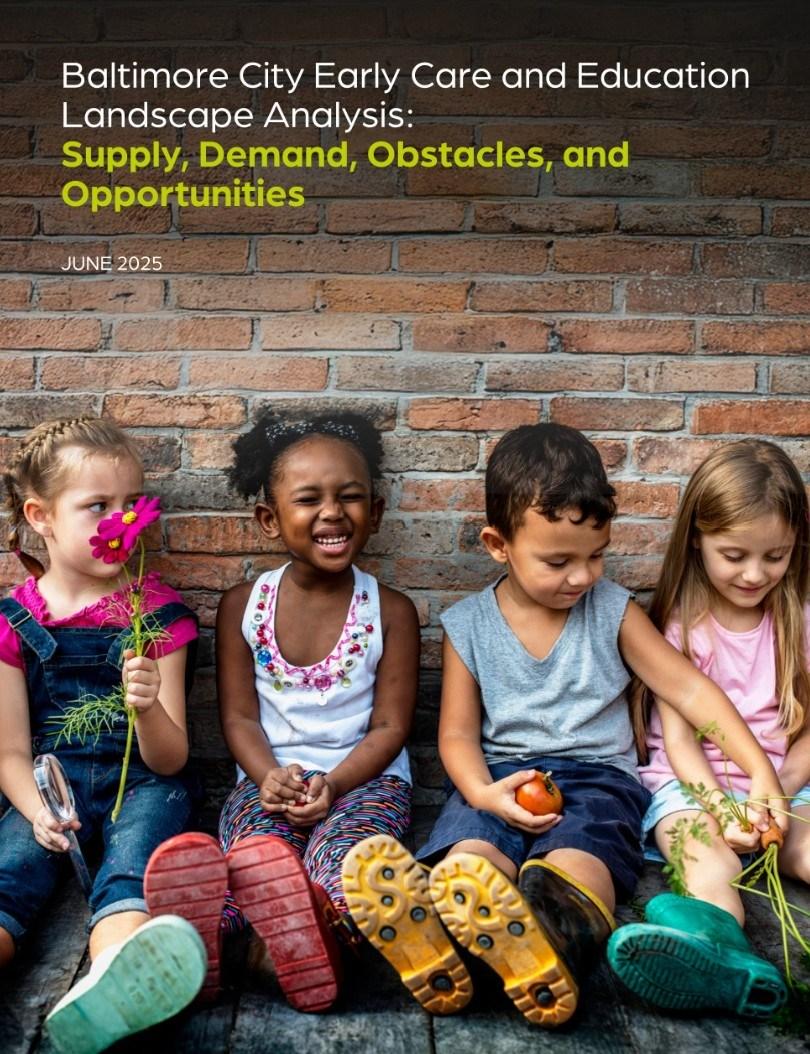
Moore recently reappointed Yolanda to the Maryland State Early Childhood Advisory Council as a Local Management Board Representative, a position she'll hold through June 2026. "This landscape analysis represents the power of true partnership," Yolanda shared. "Together, we've created a comprehensive tool that will help ensure more Baltimore children and families can truly thrive." Her leadership exemplifies Family League's commitment to data-driven solutions that create lasting change.
Four Critical Findings That Demand Action
The ECAC report reveals four key findings that paint a stark picture of the early childhood education landscape in Baltimore City:
1. Severe Capacity Shortages
The numbers are sobering: Baltimore City has licensed child care slots for only 20% of toddlers and babies aged 2 and under. When we expand to all children under 5, existing programs serve just 50% of this population. For 4-year-olds, prekindergarten is available to only 65% of children, while 3-yearolds have almost no access to pre-K programs.
2. Crushing Affordability Barriers
Families earning median income or less are spending over 30% of their income on child care more than four times the federal standard of 7% that defines affordable care. This financial strain forces impossible choices between quality care and basic family needs.
Scan to view the ECAC Report
“We have both the responsibility and the opportunity to define what happens with our city during this era. It will be hard will be tough choices to make and bullies that we must stand united against but I know that we are up to the task. Tenacity and grit is what defines us as a city and we need it now more than ever. We have the opportunity here to show the world is possible when neighbors come together to redefine their city and shape its future for the better.”
MAYOR BRANDON SCOTT
Inauguration for Second Term, December 3, 2024
3. Economic Impact on Working Parents
The lack of accessible, affordable care creates a ripple effect throughout our economy. In Maryland, 80.8% of women with children under 6 participate in the workforce, but inadequate child care options limit parents' ability to maintain stable employment and advance their careers.
4. School Readiness Gaps
Perhaps most concerning is the impact on children's futures: those in formal early learning programs are two to three times more likely to be school-ready than children in informal or home care settings. This disparity sets the stage for educational inequities that can persist throughout a child's academic journey.
What This Means for Baltimore Families
These findings reveal a system under tremendous strain, where families face real and persistent barriers to accessing quality early care and education. The consequences extend far beyond individual families they impact our entire community's economic vitality and future workforce development.
However, this report also represents hope. By clearly identifying challenges and their root causes, ECAC has created a roadmap for strategic action. The council's recommendations include fully funding pre-K for all 4-year-olds and low-income 3-year-olds, expanding infant and toddler care in underserved areas, and raising caregiver wages to stabilize the workforce.
As we move forward, Family League remains committed to this collaborative effort, working through partnerships like ECAC to advance our Cradle to Career Education priority. By focusing on quality early learning experiences, we're establishing the strong foundation that supports smooth transitions through kindergarten, middle school, high school graduation, and pathways to college and career success. Every Baltimore child deserves access to this comprehensive educational continuum, and through our work with ECAC, we're not just identifying problems we're building solutions that will strengthen families and transform our community for generations to come.
Appreciation Luncheon Honors Unsung Heros
Behind every quality afterschool program are dedicated professionals who show up with intention and purpose
For the second year running, Family League gathered dozens of afterschool professionals for an appreciation luncheon that was equal parts celebration, recognition, and heartfelt thank you. But this wasn't just another convening on the calendar it was a moment to pause and honor the people who show up every day for Baltimore's children when the final school bell rings .
recognizing the site managers, frontline staff, and youth development specialists who transform afterschool programming from simple childcare into life-changing experiences. These are the professionals who have embraced Family League's commitment to quality, diving deep into data-driven approaches like the Youth Program Quality Improvement (YPQI) model that has become the backbone of Baltimore's Out of School Time (OST) excellence.
They're the site managers who eagerly participate in self-assessments, the frontline staff who've completed Program Quality Assessment (PQA) Basics training, and the youth development specialists who form Quality Improvement Teams because they believe every child deserves excellence.
The luncheon featured special recognition for those demonstrating program quality

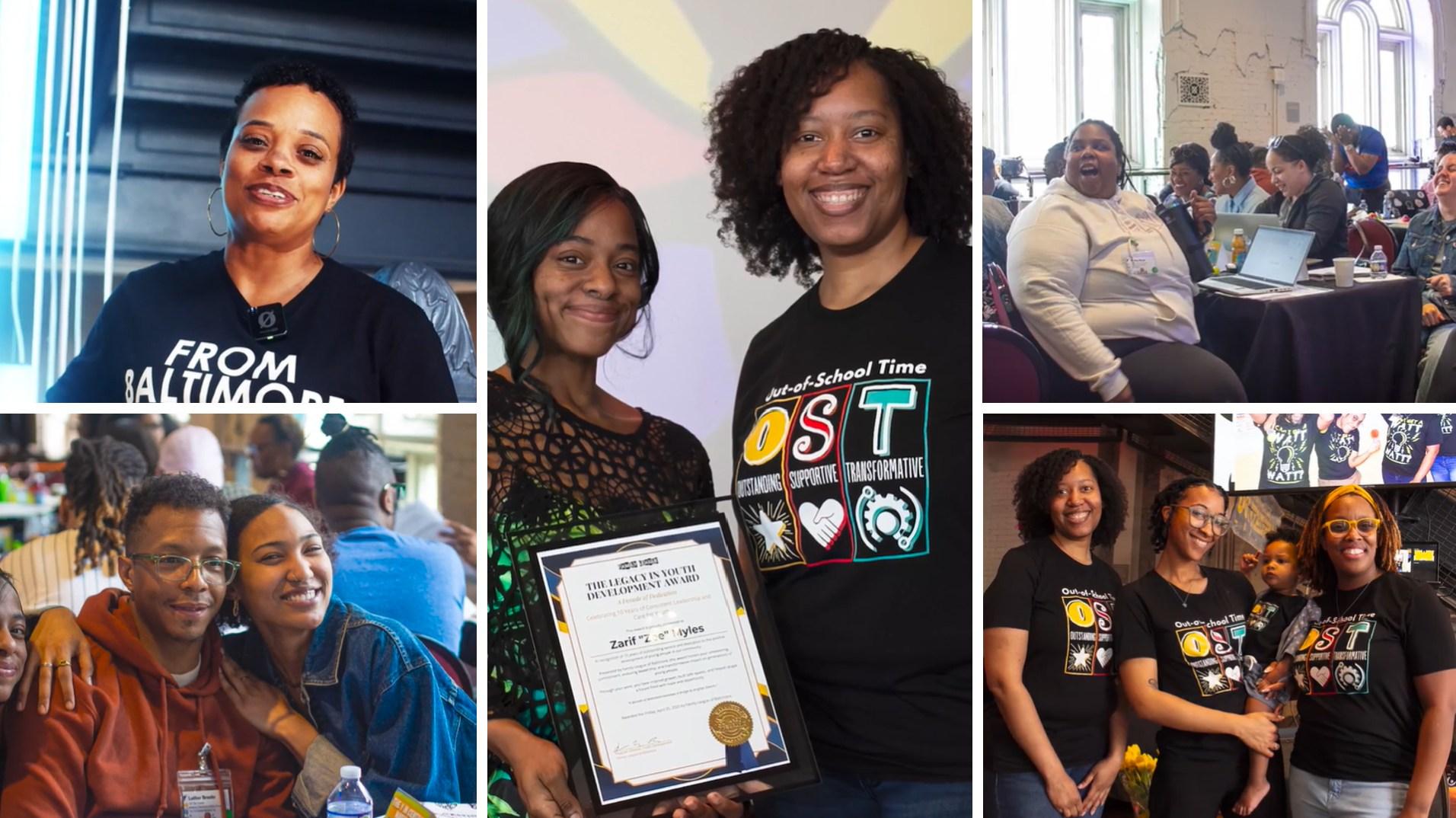
The Power of Being Seen
"Our programs serve many Black and Brown students who live in underserved communities," explained Deyara Morris Burns, Family League's Program Director of Youth Development. "We owe it to them to set high program quality standards." This philosophy drives everything Family League does, but it also illuminates why events like this luncheon matter so deeply. Behind every quality program are dedicated professionals who deserve to be seen, valued, and celebrated. The Second Annual Afterschool Professionals Appreciation Luncheon wasn't just about good food and good company though both were abundant. It was about
More Than Recognition: A Movement
What makes this celebration particularly meaningful is how it reflects Family League's broader transformation in youth development. Over the past seven years, the organization has invested over $8 million in diverse programming, expanding from 43 to 69 school-based OST programs. But growth without quality is just expansion and that's where the professionals honored at this luncheon make all the difference.
These are the people who have bought into Family League's vision of "slow and manageable growth with a focus on quality"
excellence according to data metrics professionals whose commitment to continuous improvement shows measurably in the lives of young people they serve. It's one thing to talk about quality; it's another to live it every day.
The Ripple Effect of Appreciation
What emerged from conversations throughout the luncheon was a profound sense of community among Baltimore's afterschool professionals. These are people who understand that their work extends far beyond homework help or recreational activities They're building safe,

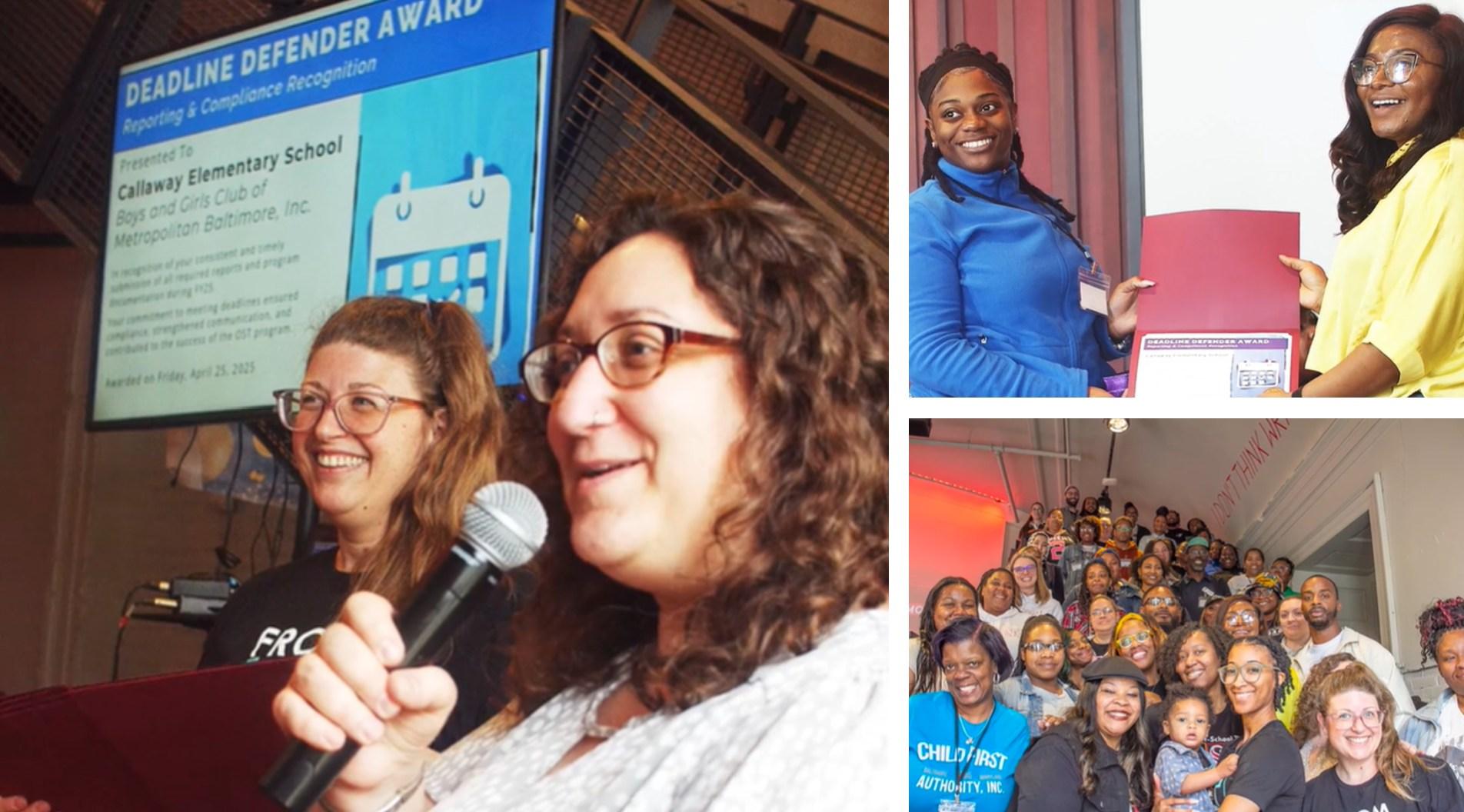
promoting data-driven, collaborative supportive, interactive environments where youth develop critical life skills. They're creating spaces where students are 16% less likely to experience chronic absenteeism a statistic that represents thousands of young lives staying connected to education.
"Now, our sites are buying in," Morris Burns shared with evident pride. "They're excited about doing self-assessments and using the tools we provide!" This enthusiasm was palpable throughout the luncheon, where professionals shared stories of breakthrough moments with students and collaborative victories in program improvement.
Building Tomorrow, One Professional at a Time
As the luncheon drew to a close, something became crystal clear: this wasn't just about looking back at accomplishments. Family League's investment in appreciating these professionals is an investment in Baltimore's future. When afterschool workers feel valued and supported, they bring that energy into their daily interactions with young people. When they're equipped with evidence-based tools and recognized for excellence, they create the kind of programs that truly change lives.
The Second Annual Afterschool Professionals Appreciation Luncheon reminded everyone present that behind every successful program, every improved outcome, and every young person who thrives, there are dedicated professionals who show up with intention, skill, and heart. In Baltimore, those professionals have a partner in Family League and a community that sees and celebrates their invaluable contributions.
Because when we honor those who serve our children, we honor our city's brightest future.
Baltimore’s Collaborative Youth Program Shows Promise
Five-Year Evaluation Reveal Program Successes and Opportunities for Addressing Service Inequities
BY MELISSA MOORE, FAMILY LEAGUE SR. DIRECTOR FOR COMMUNITY IMPACT

Melissa Moore is the Senior Director of Community Impact at Family League, where she oversees the organization’s initiatives in maternal and child health, food justice, adaptive village, and interagency investments. In this pivotal role, Melissa ensures the effective implementation of Family League’s mission through strategic leadership and dedicated service.
Since joining Family League in 2012, Melissa has been recognized with the Mayor’s Medallion for Meritorious Service and has demonstrated a strong commitment to enhancing operational efficiencies and fostering a culture aligned with the organization’s core values. A UMBC graduate and a certified Project Management Professional (PMP), Melissa combines her extensive experience with a passion for stewardship.
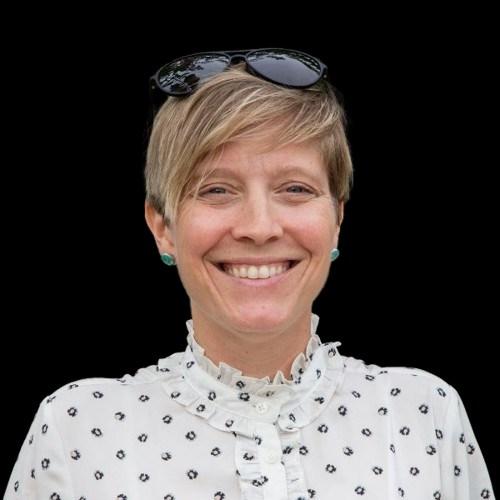

Baltimore's Local Care Team has served nearly 400 youth over five years, demonstrating both the potential and challenges of inter-agency collaboration in addressing complex behavioral and mental health needs. The program successfully connected 54% of reviewed cases to community-based services while revealing significant racial disparities that mirror national patterns in youth services.
Family League appreciates the Data and Evaluation team and consultant, Kayla Hollings for their thoughtful design and meticulous analysis that made this comprehensive evaluation possible. The report, analyzing 397 youth referrals from fiscal years 2019-2024, provides critical insights into how Baltimore's collaborative approach compares to national trends moving away from costly residential placements toward community-based alternatives.
A model built for coordination
The Baltimore Local Care Team operates as an inter-agency forum designed to support families navigating multiple childserving systems. Recognized as part of the Family League portfolio, the team brings together representatives from Baltimore City Health Department, Public Schools, Behavioral Health Systems Baltimore, and departments of Juvenile Services and Social Services. This collaborative structure allows families with children facing intensive behavioral, emotional, or social challenges to access coordinated support through a single-entry point.
Family League serves as the city's designated Local Management Board and the Local Care Team represents one focused component of this broader ecosystem, specifically targeting youth ages 16-21 who can self-refer, along with families, schools, and community members making referrals.
Significant reach with concerning patterns
The five-year evaluation reveals substantial program reach: 82% of the 397 referrals resulted in formal reviews, indicating strong initial engagement. However, the data exposes troubling racial disparities in service recommendations that align with national research showing Black and Hispanic youth receive approximately half the mental health care of white youth despite similar needs.
Figure 1 in the report illustrates these recommendation patterns across different service types, while Figure 2 demonstrates varying levels of parent and guardian attendance at team meetings. Research consistently shows family engagement as critical for positive youth outcomes, yet participation rates remain inconsistent across demographic groups.
Evidence supports collaborative approaches
Meta-analyses of collaborative youth services demonstrate meaningful effectiveness. A comprehensive study of 24 controlled trials involving 16,943 participants found community-based care
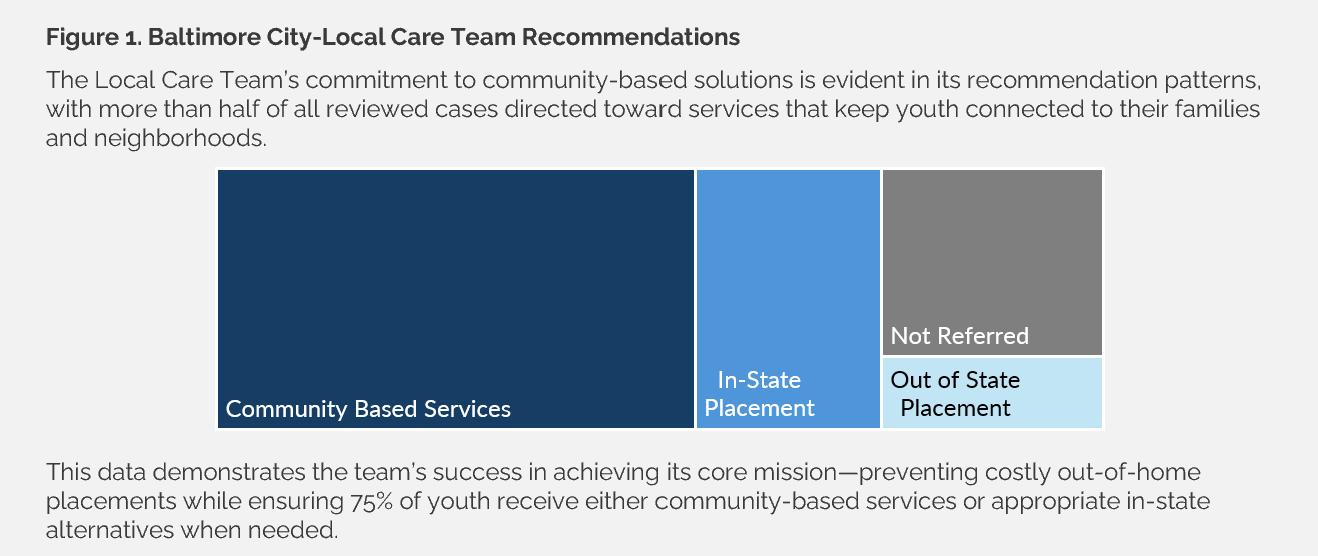
MEET MELISSA MOORE
outperformed residential treatment with a statistically significant effect size. Black youth face particular challenges, being 4.7 times more likely to be placed in juvenile facilities than white youth, despite comprising only 15% of the youth population.
Baltimore's effort reflects evidence-based practices emerging nationally. Similar Local Care Teams operate in Harford County, Maryland, and New York City's Interagency Coordinating Council, while Canada has invested $15 million over five years to strengthen 90 integrated youth service hubs. The federal Office of Juvenile Justice launched community-based alternatives initiatives in 2022, supporting states to close youth facilities and reinvest in collaborative services.
Research consistently shows family engagement interventions can double treatment retention rates. Programs using family advocates with lived experience demonstrate improved engagement and trust-building, particularly crucial given that 37% of families cite cost concerns as the primary barrier to mental health services.
Strategic recommendations for improvement
The evaluation identifies three critical areas for strengthening Baltimore's approach. First, enhancing agency collaboration through clearer protocols and shared data systems could reduce service duplication and gaps. National best practices emphasize intensive care coordination with family -driven, youth-guided planning as core components of effective collaborative models.
Second, increasing family support requires addressing practical barriers like transportation and scheduling while implementing culturally responsive practices. Research shows 86% of psychologists are white, compared to only 4% Black and 5% Hispanic, creating cultural barriers that disproportionately affect minority families seeking services.
Third, strengthening follow-up processes aligns with evidence showing sustained engagement produces better outcomes. Studies indicate proper implementation of team-based approaches improves both professional satisfaction and service effectiveness when supported by clear roles and systematic follow-up
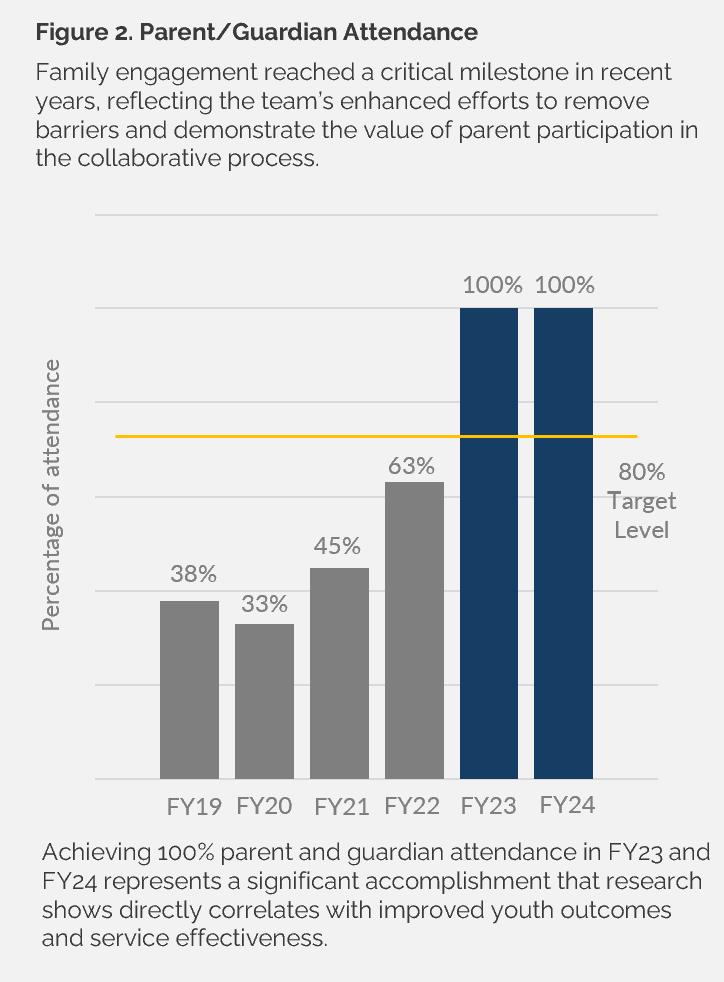
Building on proven foundations
Baltimore's Local Care Team operates within a national movement toward collaborative, community-based youth services supported by robust evidence and federal investment. The program's success in connecting over half of reviewed cases to community services demonstrates the potential of inter-agency coordination while highlighting persistent inequities requiring targeted intervention.
As cities nationwide shift resources from institutional settings to community alternatives, Baltimore's five-year experience provides valuable insights for strengthening collaborative approaches. The evaluation's findings suggest that with enhanced coordination, increased family support, and systematic follow-up, the Local Care Team model can better serve Baltimore's youth while addressing the racial disparities that undermine equitable access to quality services.
“Family League Sets National Standard for Youth Development” continued from page 1
cities seeking to understand and improve their youth development ecosystems.
Building Systems Through Collaborative Partnership
The publication also showcases our OST Funding Formula Workgroup as an example of effective collaborative policy development. This focused group of OST lead agency representatives and Family League staff met monthly to examine funding landscapes across Baltimore and nationally, ultimately developing evidence -based funding recommendations that maximize resource efficiency while ensuring comprehensive support for young people.
"This recognition reflects our commitment to building systems that don't just fund programs, but fundamentally change how communities support young people," said Demaune Millard, President & CEO of Family League. "When intermediary organizations like Family League use data to drive decisions and invest in grassroots partnerships, we create the infrastructure necessary for lasting change in children's lives."
Community Schools Integration
The Family League model demonstrates how intermediary organizations can effectively layer programming into community schools, leveraging existing school infrastructure while responding holistically to the needs of children, youth, and families. This approach maximizes resource efficiency while ensuring comprehensive support for young people a strategy now being studied and replicated nationwide.
The National Academies report arrives at a critical moment for youth development policy, providing actionable guidance for young people a strategy now being studied and replicated nationwide.
The National Academies report arrives at a critical moment for youth development policy, providing actionable guidance for policymakers, funders, practitioners, and researchers across the country. Family League's inclusion reinforces Baltimore's position as a leader in innovative youth development approaches and validates our 30 -year commitment to data-informed, community-driven solutions that create lasting change for Baltimore's children and families.
“Doing What Matters: A Testament to Strategic Impact” continued from page 3
"We intentionally chose to feature Baltimore's vibrant mural artwork throughout the report," Millard explained. "These pieces

1734 Maryland Avenue, 3rd Floor Baltimore, MD 21218 (410) 662-5500 familyleague.org
Family League of Baltimore is a 501(c) (3) nonprofit organization and the designated Local Management Board for the City of Baltimore. Since 1991, it has served as an architect of change by promoting data-driven, collaborative initiatives and aligning resources to create lasting outcomes for children, families, and communities.
BOARD OF DIRECTORS
Nancy Blackwell, Chair
Nicole Earle, Treasurer
Barry S. Solomon, MD, MPH, Secretary
Ben Perez
Ramsey L. Harris
Joshua M. Sharfstein, MD
Dr. Royce Burnett
Erika McClammy, Esq.
Ex-Officio Members
Debra Y. Brooks, Ed.D Mayor’s Office of Children and Family Success
Tina Hike-Hubbard, Baltimore City Public Schools
Charles Jackson, Baltimore City Health Department
Demaune Millard, Family League
Corrine Mullings, LMSW, Baltimore City Department of Social Services
capture the authentic touch and feel of the neighborhoods where Family League works daily. Art has always been a powerful connector in Baltimore, and including these murals honors both our community artists and the residents we serve."
The report's structure reflects the organization's Transformation 2024 Framework, visualized as a house with Family League's mission as the foundation, supporting three strategic pillars that uphold priority areas of cradle-to-career education, healthy families, economically secure families, and safe and thriving communities all working toward the bold goal of equity for all Baltimoreans.
Partner satisfaction reaching 94% up from 80% in FY23 demonstrates the tangible impact of these strategic improvements, while the establishment of a Community Advisory Board ensures authentic community voice remains central to all decisionmaking processes.
“Investing in Those Who Care” continued from page 5
recognizes every component including workforce wellness as crucial to achieving health equity across Baltimore's neighborhoods.
The Refresh event ultimately reinforced that sustainable community change requires investing not just in programs, but in the people who breathe life into those programs every single day.

LEADERSHIP TEAM
Demaune Millard
President & CEO
Keianna Thompson
Chief Financial Officer
Jonathan Carter
Chief of Staff
Charles Stafford
Sr. Director of People and Culture
Jenee Tucker
Sr. Director for Community Impact
Melissa Moore
Sr. Director for Community Impact
Dara Gray
Sr. Director of Innovation and Technology




of Baltimore @family_league @Family_League
